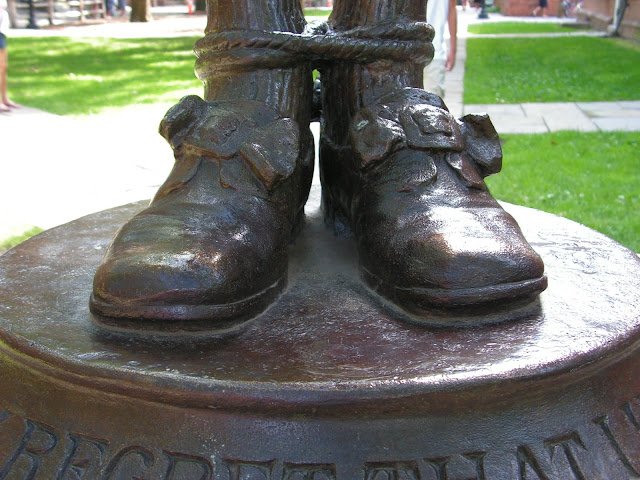Losing our chains
Texts: Galatians 3:23-29 and Luke 8:26-39
Today, Jesus gets in his boat and deliberately crosses over to the other side of the lake. This is like going over to the other side of the tracks: the people who live on the other side of the lake are Gentiles, people Jews don’t associate with.
There Jesus finds a man whom even the Gentiles don’t associate with. A guy living in the cemetery, usually chained up except for when he gets loose, with no home, job, family, or even clothes. The man is so used to being outcast, naked in the cemetery, alone, that he doesn’t really know who he is. He’s living in an alternate universe from the world his neighbors live in.
And Jesus has come across the lake to this man in order to restore him to wholeness and community, to give him a new identity, which St Paul explains to the Galatians is the identity that we all have, called “Child of God.” Not simply man or woman or slave or free or Jew or Gentile or homeowner or homeless or calm or tormented. But Child of God first.
And so the word gets out (due to the issue of the pigs all jumping into the lake) and the neighbors who do wear nice clothes and live in their own houses and who are not tormented, come out to see what’s going on, and they find this man sitting at Jesus’ feet, clean, wearing clothes, calm and cool.
You would think that this would be a cause for rejoicing, wouldn’t you? You would think that the people would be happy that this man was no longer captive to all the things that were destroying him, no longer an outcast, no longer wild and scary. You would think that the people would be happy to see their neighbor freed from all his troubles and able to come back into society from his place on the margins and find his home among them.
But no, the people are not happy. They are scared, so scared that they ask Jesus to leave on account of what he has done. Whatever it is that Jesus brought with him to this side of the lake, whatever it is that caused this man to be transformed from tormented to normal, they don’t want any of it. They want Jesus to get back into his boat and go back to where he came from and leave them alone.
Meanwhile, the man wanted to go with Jesus and follow him on the road. But Jesus affirms that his vocation is to stay in his community and be who he is, to be a living, breathing example and testimony to what God has done for him right there in his own community.
And this scared the people even more. They can send Jesus away, but the work of God will go on right there in their community. The transformation has happened and will continue to happen because they will all be in community together instead of kept separated and with some of them marginalized. They will be changed, forever, all of them.
Because, and this is both wonderful and terrifying, we are all transformed by being in community with people who are not like us. Other people don’t join us and become just like us. We all change because we are in relationship together. We have an effect on each other. We learn about one another, we find out that we have things in common, we find out that our ideas about others might be wrong. We find out that we don’t have all the answers or the only perspective. We find out that there are other ways of seeing things. We find out that what we think of as “normal” is only a part of what is normal in God’s world. There are other ways of being besides the way we are.
And we can choose to accept and even embrace that, and grow into the fullness of humanity that Jesus came among us to embody, grow into a loving community that cares for all its people, which is what Jesus is challenging the Gerasenes to do here - and what Jesus challenges us to do - or we can reject it, send Jesus back home with a firm no thank you, and become more and more insular and less and less relevant and vibrant.

But somehow I think that even if we try to set up barriers for others, or try to hide behind barriers ourselves, the good news is that Jesus will come and find us and restore our identity to us. Jesus will take away our chains and remind us who we are - children of God, each and every one of us - and encourage us to lose our chains and just be who we are, in all our breathtaking diversity, and yet all one in Christ Jesus, together.

Comments